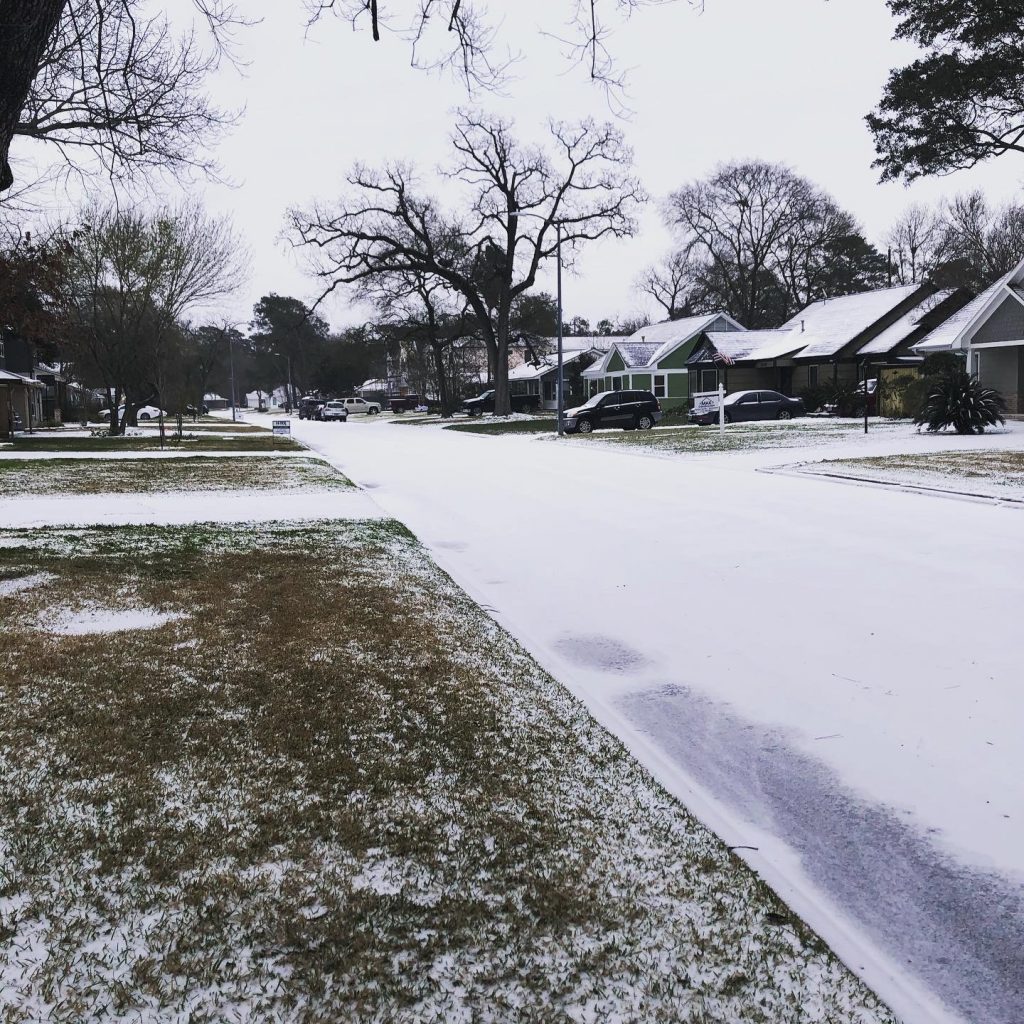
Amy Heidbreder
Blogger and Freelancer
Amy is a professional web content manager in megachurch world and a humble amateur equestrian. Follow her adventures of praying and riding. Available for freelance.
In Times of Crisis
I find how a person responds in the face of crisis can say a lot about their character. In my short career, I’ve seen many a reaction to disaster. The most noteworthy include:
- THE SCREAMER // This is the person that everyone is usually encouraging to remain calm. This person might say over one thousand times “I don’t know what to do” very loudly. They’re usually quite frantic, and the one others are quietly pushing away from the scene of the action.
- THE RUNNER // This is the person who conveniently disappears during a crisis. They vacate their office, stop answering email, turn their phone off and go completely MIA. They resurface at a quieter time with a handy excuse about their phone dying while they stepped out to go run an errand.
- THE ACTION TAKER // This is the person elbowing people out of the way to get to the issue. They without permission just start fixing stuff. This person is the vortex around which an immediate solution revolves.
- And my personal favorite, THE BLAMER // The blamer diverts attention away from the crisis. Rather than resolve the issue at hand, they skip over it and try to find who’s responsible.
The blamer uses crisis in many cases for personal benefit, to dodge responsibility, to cover up a mistake, or to use it as proof to justify their feelings against a third party. The blamer has no interest in solving the immediate issue, but in some cases, they can genuinely be interested in keeping it from happening again; therefore, resolving future issues. In my personal experience, few and far between are the blamers genuinely interested in solving future problems. Nine times out of ten, they want to bring to light a strike against someone they don’t like, they want to dodge fault, or they want to use it to further justify their political view point.
During the month of February, living in Texas, my social feed was filled to the brim by a lot of blamers. February ran me and most Texans over like a dump truck. In Houston, the only extreme weather we ever really have to worry about are hurricanes, but this past February all us Southerners were thrown a frozen curveball.

Winter Storm Uri brought on full blown crisis mode in South Texas. And what was the first response on social media? It was an uproar of finger pointing, many trying to pin which political party was at fault for all of Texas losing power. Several others turned to blaming certain types of energy. It was stuck wind turbines, they touted. Solar panels were snowed over; proof green energy is stupid. Gas pipelines froze, shouted the other side. All this bickering, people hunting for a reason to hate green energy, a reason to blame the “Demon-crats,” a reason to vote out those fascist Republicans, a reason to discredit anyone and everyone associated with ERCOT. All the while panicked crews worked round the clock, making the horribly hard decisions to shut down power grids before equipment caught fire, causing irreversible damage that would subsequently take weeks or months to repair; while public water workers in below freezing temperatures dove, full body into churning, frothing water to attempt and fix submerged pipes in order to restore water to citizens like me; while friends with gas stoves opened up their homes to others who couldn’t cook and hadn’t eaten in a day. What a luxury to be able to post and complain on Facebook.

There were many poor decisions made in managing this crisis, the biggest of which was arguably complacency by many Southerners, myself included. We did not appreciate or understand exactly what was coming. Had I lost power on the coldest night, I could have very well ended up with broken pipes. I was lucky to not lose power until Wednesday, early morning, close to 2am, almost 48hrs into the crisis. By then, I didn’t have water anyway, and I only lost power for a brief 16 hrs. I feel exceptionally blessed in my area. I’m on the same power grid as a grocery store and other essential businesses. Also, ahead of hurricane season this past year, Center Point spent time conducting fairly extensive stress tests on our particular power grid. The crews regularly come through to trim away intrusive tree branches getting close to power lines. If there was a power grid prepared for a diabolical weather event, it was mine. The truth is though, not everyone’s grid was prepared for crisis, and no one had anything “winterized.” Did you know diesel fuel gels at 10–15 degrees? I didn’t. Barely anyone in the South knew that, and do you know where you can buy anti-gel additive in South Texas? NO WHERE!
Texas was caught on their heels, mismanaging backup generators, and having to just wait it out until everything thawed. With no power, pipes inside homes froze, leading to extensive water damage when everything started to unfreeze. With no water, restaurants couldn’t open, and with icy roads, people were pretty much stuck, leading to some going hungry in homes without gas stoves. Many are still dealing with the effects of this storm, several taking an economic hit in plumbing repairs and anyone on a variable rate electric plan is currently grappling with bills ranging in the thousands. It’s tough in these times to turn inwardly and admit a mistake, but is this all ERCOT’s fault? No. Is this all the Republican’s fault? No. Is this all Green Energy’s fault? No. Is this a native South Texan’s fault for not being prepared? Maybe a little, but no to that too. There’s no easy way to pin point blame, because truth be told even some of the victims in this storm were victims to their own lack of action. My dad has some tenants who suffered significant water damage in their bedroom. The entire ceiling caved in. They had lost power, but naively thought they later lost water because everyone in the city had, not realizing their pipes were frozen solid. They never turned the water off to the house and when things started thawing, they had a collapsed ceiling in 5 short minutes. My father has another residence he’s renting that suffered a broken pipe. He did turn the water off to this home, but admits he only drained one tap, not all of them. I know some others with damage who didn’t think to turn their well off until it was already frozen solid. Did we give ourselves the best shot at surviving this? I think I only know one person who did everything right and still had broken pipes with significant water damage. Even in northern states, they deal with blackouts during ice storms, and yes our infrastructure isn’t built like up north, but is it right to, for example, blame the Republicans when we didn’t even turn the water off to our home and give ourselves a fighting chance?
All us Southerners learned a valuable lesson in Freeze 101 this past February:
- If our power goes out, immediately turn the water off and drain ALL taps.
- Get off a variable rate electric plan.
I hope to next freeze see a bunch of Texans doing the above two things before going to Facebook to blame someone. I also hope to see companies begin implementing real winterized solutions, not just fluffily releasing a statement that targets a politician and diverts blame. Be the action taker!

I will admit my luck at having no damage and being on a fixed rate electric plan. I’m grateful for the comfort of my home, and a neat house with little to trip over when the power went out. I’m grateful I spontaneously cleaned all dirty laundry right before the storm, and definitely thanking God for the foresight to fill the tub as high as I could before losing all water pressure so I could at least flush my toilets through Winter Storm Uri. Going without water for a few days was hard, but not impossible. I felt oddly prepared for Winter Storm Uri. I had stocked up on bottled water, soups, pastas, snacks, and other food. While the entire neighborhood was scavenging for basic supplies, I was beyond good. I was even able to help my parents who came over to bail out some of my tub water to flush their toilets.

I feel very lucky to have gotten through Uri unscathed, and it was just luck—good location, well timed grocery trip, gas appliances, and a fixed rate electric plan. I did not appreciate what was coming either. But, even if I had suffered, I still don’t think I’d be so quick to blame someone. That’s not how I react in crisis. Blaming someone in this is like blaming the Mayor your home right next to the bayou flooded during Hurricane Harvey.
If you were to take a close look at yourself, how do you react during crisis?